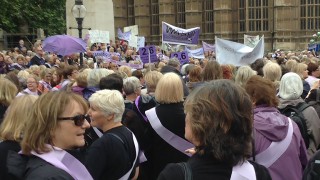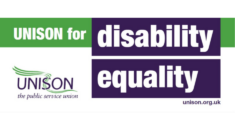UNISON’s local government conference agreed this morning to campaign for a “new gender agenda” that puts women’s issues at the forefront of negotiations and work.
For the executive, Helen Steel told delegates that, although the number of women working in local government is high, the majority of senior managers are male.
And that begs the question: “Where is the women’s voice in the dismantling of our services?”
Because, she said, that means that it is “mainly men deciding about the value of the work and deciding where the cuts will fall”.
Ms Steel added that it was “time to challenge the view of traditional women’s work”, including caring roles, which are not treated with the respect that they should be.
Jean Thorpe from Nottingham City told delegates that the 21st century has seen the situation for women workers decline, with many earlier gains reversed, while Sharon Campion from Sandwell said that wage freezes, job cuts and services axed acted as a “triple whammy” for women.
After highlighting the particular needs of women in rural communities, Steph Davies from Wales called on activists to make sure that they utilised equality impact assessments in the fight against cuts.
For the executive, Irene Stacey said that “we don’t need academics to tell us that women are facing the brunt of the coalition government’s cuts”.
Chris Russell from Somerset County said that, while “great strides have been made” in recent decades, the loss of public services has a deeply negative impact on women’s work opportunities.
Mags Hindle from Stockport noted that flexible working has changed into being about flexibility for management, and she added that there are “no agency bank workers being used”.






